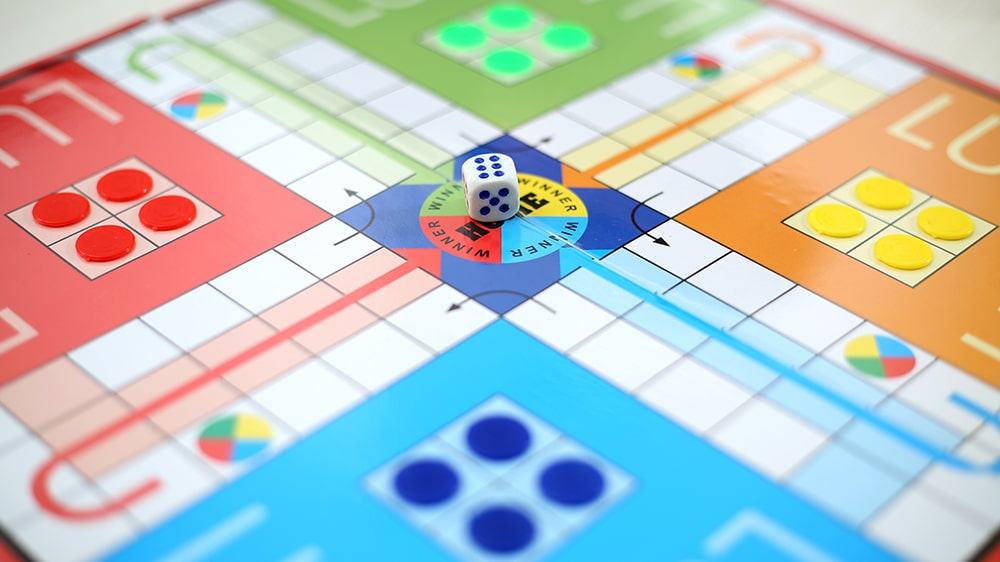Ludo, a game that has stood the test of time and entertained generations, is often viewed as a game of luck due to its reliance on the roll of a dice. However, beneath the surface of chance lies a layer of probability that can significantly influence your decisions and strategies. Understanding this role of probability can help you make more informed decisions and increase your chances of winning in Ludo. In this blog post, we’ll explore how probability plays a crucial role in Ludo and how you can harness it to your advantage.
The Fundamentals of Ludo Probability
Ludo is essentially a game of chance based on the roll of a six-sided die. Each face of the die has an equal probability of landing face up, making it a theoretically random event. However, when you consider the frequency of specific rolls over a series of turns, patterns begin to emerge.
In a standard game of Ludo, your primary objective is to roll a 6 to move a token out of the starting area or advance a token already on the board. It’s important to remember that each roll of the die is independent, meaning that the outcome of one roll does not affect the next. This independence forms the foundation of Ludo’s probability.
Probability and Decision-Making in Ludo
Understanding the probabilities associated with each roll of the dice can significantly influence your decision-making in Ludo. Here are several key ways in which probability plays a pivotal role:
1. Token Movement Decisions
When deciding which token to move, consider the probability of rolling a 6. Tokens in the starting area are the most likely to benefit from a 6, as they require it to enter the board. However, if you have a token already on the board and closer to the finish line, you might prioritize moving that token to capitalize on the probability of rolling a 6.
2. Blocking Opponents
Probability can also guide your decisions when it comes to blocking opponents. If an opponent’s token is one space away from one of your tokens, moving your token to the same spot can be a strategic move. This action forces your opponent to roll a 6 to advance, considering that rolling a 1 would mean landing on your token and getting sent back to the starting area.
3. Risk and Reward Assessment
As the game progresses, you’ll often encounter decision points where you must weigh the potential rewards against the risks. Understanding the likelihood of specific roles can help you assess these situations more effectively. For example, if you’re close to the finish line, you might take calculated risks, knowing that you’re more likely to roll a number that benefits you.
4. Planning Ahead
Successful Ludo players plan several moves, and probability plays a crucial role in this planning. For instance, if you’re three spaces away from the finish line and have multiple tokens on the board, you might prioritize moving a token that will land on a favorable spot once you roll the required number.
Leveraging Probability for Success
Now that you recognize the significance of probability in Ludo, here are some practical Ludo tips for using it to your advantage:
1. Token Prioritization
Start by prioritizing ludo tokens in the starting area. These tokens require a 6 to enter the board, and your chances of rolling a 6 are relatively high. Getting a token onto the board should be your initial goal.
2. Blocking Opponents
When considering blocking opponents, focus on tokens that are one space away from your opponents’ tokens. This maximizes the probability of hindering their progress and increases your chances of sending their tokens back to the starting area.
3. Strategic Movement
Plan your moves strategically based on the probability of rolling specific numbers. Tokens closer to the finish line should receive priority when you have a good chance of rolling the required number.
4. Assessing Risks
Evaluate risks carefully based on the probabilities involved. Be willing to take calculated risks when the potential rewards justify them. Understanding the likelihood of favorable outcomes can guide your risk assessment.
5. Patience and Timing
Recognize when to be patient and when to take action. If you’re close to the finish line and can afford to wait for a specific roll, do so. Timing can be crucial in Ludo, and understanding probabilities can help you make the right call.
Conclusion
Ludo, often seen as a game of chance, is, in fact, a ludo cash game where understanding probability can significantly impact your decision-making and success. By considering the likelihood of specific rolls and planning your moves accordingly, you can increase your chances of winning and enjoy a more satisfying Ludo experience. Remember that Ludo is not just about rolling the dice; it’s about making thoughtful decisions that give you an advantage on the board. So, the next time you play Ludo, embrace the role of probability and use it as a tool to roll your way to victory.












